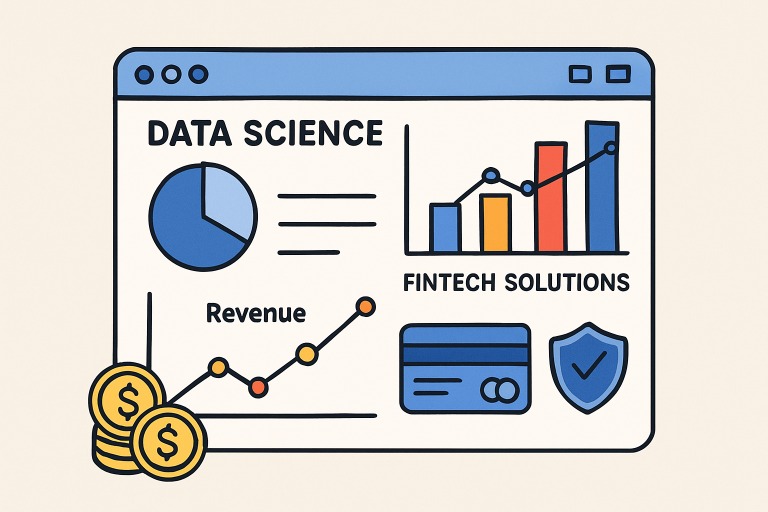Introduction
In today’s fast-paced digital era, financial technology—or fintech—relies on data science as its backbone to uncover insights, mitigate risks, and offer personalized services that meet evolving customer demands. With massive datasets, fintech organizations are creating more innovative solutions, streamlining operations, and gaining a deeper understanding of consumer behavior. Among those leading conversations in this space is David Johnson Cane Bay Partners, whose innovation-focused strategies offer a window into how data-driven approaches reshape financial services for consumers worldwide.
Digital transformation in the financial industry would be unthinkable without the advancements brought by data science and machine learning. These tools enable real-time analytics, predictive modeling, and agile strategies that give fintech companies an edge over traditional finance. As more consumers shift to digital banking and investing, industry leaders from Cane Bay Virgin Islands showcase how harnessing data can build trust, enhance service quality, and foster long-term growth in this highly competitive domain.
Enhancing Fraud Detection and Security
Security is a top priority for fintech firms as they confront increasingly sophisticated threats in a digital-first environment. Traditional defenses—while essential—are being augmented by machine learning-powered systems that can sift through millions of transactions in milliseconds and immediately flag abnormalities. These intelligent algorithms “learn” typical user behaviors and refine their detection capabilities over time, thereby reducing false positives and keeping fraudsters at bay. As highlighted on Forbes, this speed and accuracy transform fraud prevention from a reactive effort to a proactive shield.
Revolutionizing Credit Scoring
The limitations of legacy credit scoring models—often reliant on static attributes such as employment status and history—exclude many potential borrowers from accessing fair credit. Here, data science revolutionizes the process. Modern platforms create holistic borrower profiles by integrating non-traditional data sources like bill payments, online spending patterns, and social metrics. These models improve risk assessment for lenders while opening doors for financially underserved segments, contributing to broader financial inclusion. The ability to harness big data for deeper insights is now an industry standard, as described in recent research on credit default prediction.
Personalizing Financial Services
As consumer demand for personalized experiences grows, fintech companies are turning to data analytics—often supported by expert consulting—to deliver more relevant and targeted financial solutions. Sophisticated algorithms process vast amounts of user data to identify preferences, anticipate needs, and recommend tailored offerings, from customized investment plans to innovative budgeting tools. This shift toward hyper-personalization enhances user engagement and satisfaction, helping brands stand out and build lasting loyalty in a competitive financial landscape.
Optimizing Investment Strategies
Thanks to predictive analytics and artificial intelligence, investment management has undergone a profound shift. Machine learning models deliver timely market forecasts, risk assessments, and actionable insights for investors by continuously analyzing vast historical datasets and factoring in market variables. Fund managers now make informed portfolio adjustments in real time, offering clients improved returns and advanced risk mitigation. This adaptability is a game-changer, especially in volatile markets where informed decision-making can mean the difference between gains and losses.
Improving Regulatory Compliance
Regulatory frameworks in the financial sector are evolving rapidly, creating complex challenges for compliance. Data science streamlines this by automating risk detection and ongoing compliance monitoring across transactions and communications. Sophisticated AI tools search vast data archives to identify potential breaches and generate precise regulatory reports, helping fintech organizations avoid costly fines and maintain consumer trust. Automation not only reduces human error but also cuts compliance costs substantially, ensuring agility in adapting to new regulations.
Driving Growth in Fintech
Strategic use of data analytics is becoming an essential growth lever for fintechs. Unlocking actionable insights from internal and external market data, companies quickly identify unmet needs, design innovative products, and launch targeted marketing campaigns. The flexibility afforded by data science supports ongoing experimentation and iteration, giving fintech leaders the chance to test, learn, and evolve in step with the market. Data-driven enterprises are more resilient and better positioned for long-term expansion.
Conclusion
The fusion of data science and fintech is creating an ecosystem defined by innovation, security, personalization, and agility. Industry pioneers recognize that data-centric methodologies are not just a trend but the engine powering the next wave of financial services transformation. As analytic techniques grow more sophisticated and organizations continue to set standards for excellence, the future of fintech promises to offer more innovative, more secure, and truly customer-focused solutions that shape the global economy.

